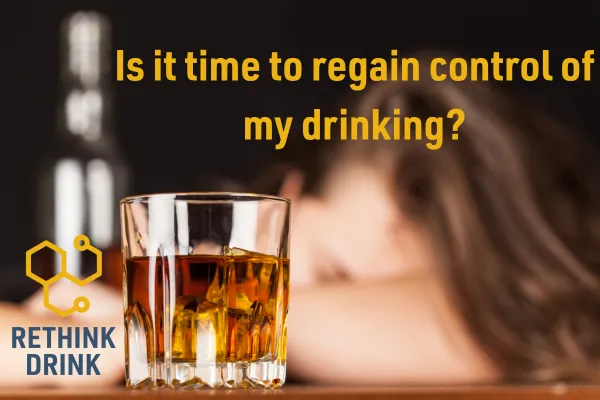
When Is Drinking Out of Control? Spotting the Signs Before It’s Too Late
Key Takeaways
Out of control drinking often develops gradually and can be difficult to recognise.
Emotional dependence, secrecy, and increased tolerance are red flags.
The Sinclair Method and Naltrexone provide a science-backed path to regain control.
Compassionate coaching and support are essential for sustainable change.
Free screening calls offer immediate clarity and guidance on next steps.
Understanding Out of Control Drinking
Alcohol can start off as a way to relax, celebrate, or socialise. But over time, that relationship can shift—sometimes subtly, sometimes dramatically. Out of control drinking isn’t always obvious. It can creep into your routines, habits, and mental health without you noticing until real damage has been done.
At Rethink Drink, we help people identify and reverse these patterns before they become entrenched. Knowing what to watch for is key.
Warning Signs Your Drinking May Be Out of Control
Below are some common signs that your relationship with alcohol may be slipping into dangerous territory:
You drink to manage stress, anxiety, or difficult emotions, rather than for enjoyment or social reasons.
Blackouts or memory lapses have become more frequent after drinking.
You find it difficult to stop once you start, even if you’ve planned to limit yourself.
Drinking alone or in secret has become a regular occurrence.
You’ve stopped enjoying hobbies or meeting responsibilities because alcohol is taking precedence.
Feelings of guilt or regret often follow a night of drinking.
You need more alcohol than you used to in order to feel relaxed or drunk.
Even just a couple of these can be signs that it's time to re-evaluate your habits.
Why It’s So Easy to Miss the Signs
In the UK especially, drinking is often woven into the fabric of everyday life. Whether it’s a pub visit after work, bottomless brunches, or boozy weekends, our culture tends to blur the line between casual and problematic drinking.
This normalisation leads many to downplay the seriousness of their behaviour. We might think, “Everyone does this,” or “It’s just a phase.” But the reality is that even moderate but compulsive patterns can indicate a deeper issue.
What Taking Back Control Looks Like
The good news? Recovery doesn’t have to mean all-or-nothing sobriety. Many people find that gradual change using science-backed methods is not only effective—it’s sustainable.
We support the Sinclair Method, a medical approach that involves taking Naltrexone before drinking. Over time, this reduces the brain’s reward response to alcohol, making cravings fade and consumption decline naturally.
For more on this method and real-world results, visit our blog post on what the Sinclair Method looks like in practice.
How We Can Help You Rebuild Control
At Rethink Drink, we offer a structured, personalised journey designed around your unique relationship with alcohol. Here’s what that support looks like:
Free screening call to explore whether the Sinclair Method is a good fit for you. Book yours today.
1:1 coaching and accountability, helping you stay focused, supported, and motivated throughout.
Education around Naltrexone and extinction, empowering you with tools backed by neuroscience.
Non-judgemental support, especially if you’ve tried and “failed” with traditional methods before.
Progress tracking and tailored guidance, so you can see and celebrate the changes you’re making.
Final Thought: You’re Not Alone
If any of this resonates with you, it might be time to ask, honestly: Is my drinking out of control? If the answer feels even slightly like “yes,” you’ve already taken the most important step—awareness.
At Rethink Drink, we’re here to help you take the next step, with evidence-based tools and non-judgemental support to guide your journey.


